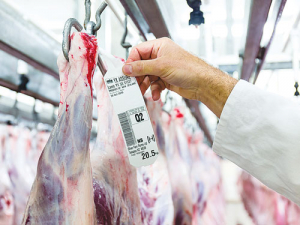M.I.A.
OPINION: The previous government spent too much during the Covid-19 pandemic, despite warnings from officials, according to a briefing released by the Treasury.
 New meat processing protocols have reduced the industry’s peak processing capacity by approximately 50% for sheep and 30% for cattle.
New meat processing protocols have reduced the industry’s peak processing capacity by approximately 50% for sheep and 30% for cattle.
COVID-19 will continue to impact heavily on the ability of farmers to get stock killed during April and May.
The impact is due to physical distancing requirements between meat plant employees to prevent the spread of the virus
Beef + Lamb New Zealand’s Economic Service, in conjunction with the Meat Industry Association and the processors, have just released its assessment on processing capacity across the country and the potential impact on waiting times for farmers.
The findings show the new meat processing protocols have reduced the industry’s peak processing capacity by approximately 50% for sheep and 30% for cattle.
Due to uncertainty about how long Alert Level 4 may last, and whether the physical distancing rule will remain under Alert Level 3, the modelling is based on these protocols remaining in place for eight weeks from the start of April.
Both BLNZ and MIA say they are acutely aware there are already significant waits for some farmers – especially on drought-hit regions of the country.
They’re forecasting extra delays to lamb processing in the South Island in April and May – with processing being pushed back at least a further week. In the North Island, no further delays are expected on top of what farmers are currently experiencing. There’s unlikely to be any impact on adult sheep or bobby calf processing.
Cattle farmers are being urged to talk to their processors – as each will have individual plans around prime versus manufacturing.
BLNZ are forecasting that bull processing is likely to be unaffected because the peak of processing occurred in January. However, it says farmers can expect a week’s delay – on top of any current backlog of prime steer and heifer – in both islands in May. It expects this extra one-week backlog to carry on through to June in the North Island.
MIA says it’s conscious of the problem and is working hard to see how production can be lifted under the COVID-19 protocol.
B+LNZ, says together with the MIA and processing companies, it will be updating processing data and reforecasting on a weekly basis and feeding this back to the industry. It will continue to give an overall picture on likely processing performance nationally, by island and stock class, and identify ongoing implications.
The Meat Industry Association of New Zealand (MIA) today announced that Chief Executive Officer Sirma Karapeeva has resigned from the role.
The winners of the 2026 Hawke’s Bay/Wairarapa Dairy Industry Awards were announced at the annual awards dinner held at Copthorne Solway Park in Masterton on Thursday evening.
Environment Southland is welcoming this week’s decision by the Environmental Protection Authority (EPA) to approve the release of Blaptea elguetai, a leaf‑feeding beetle that will help control the highly invasive Chilean flame creeper.
This March, the potato industry is proudly celebrating International Women’s Day on 8 March alongside the International Year of the Woman Farmer, recognising the vital role women play across every part of the sector — from paddocks and packhouses to research, leadership, and innovation.
Fruit trader Seeka posted a record profit and returns to shareholders in 2025.
Recent weather events in the Bay of Plenty, Gisborne/Tairawhiti, and Canterbury have been declared a medium-scale adverse event.

OPINION: A mate of yours truly reckons rural Manawatu families are the latest to suffer under what he calls the…
OPINION: If old Winston Peters thinks building trade relations with new nations, such as India, isn't a necessary investment in…